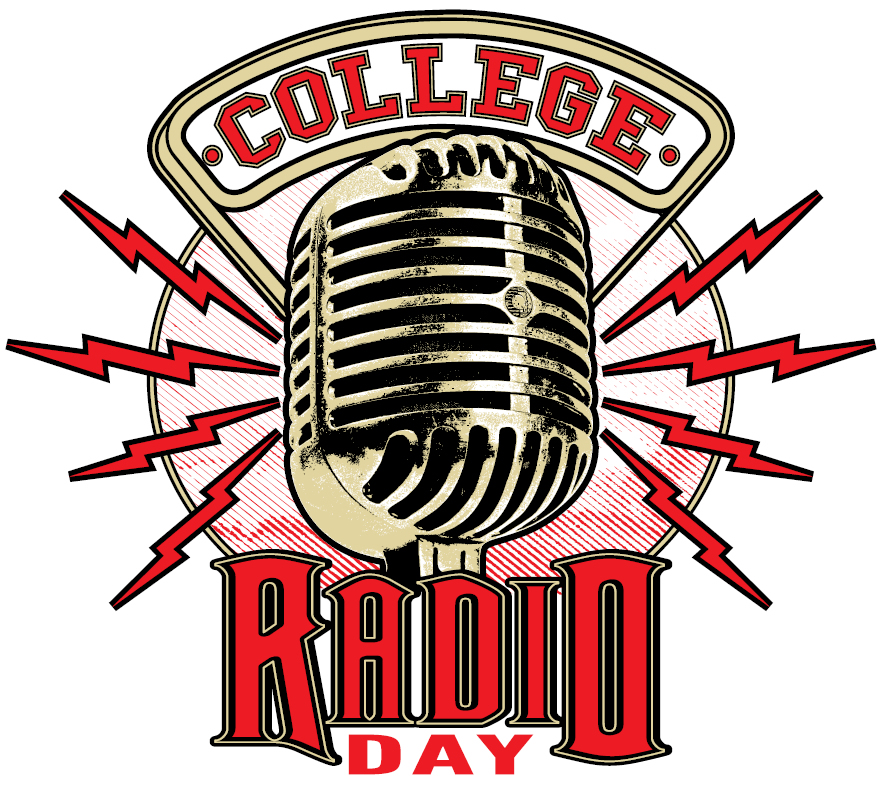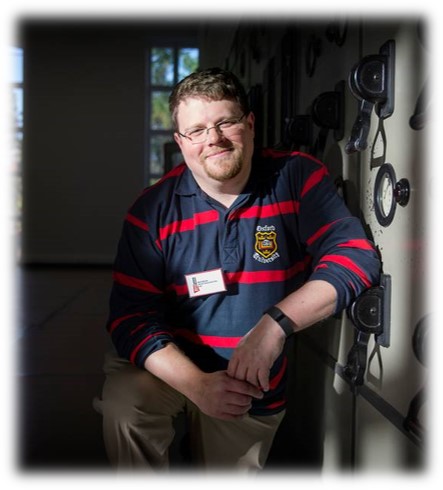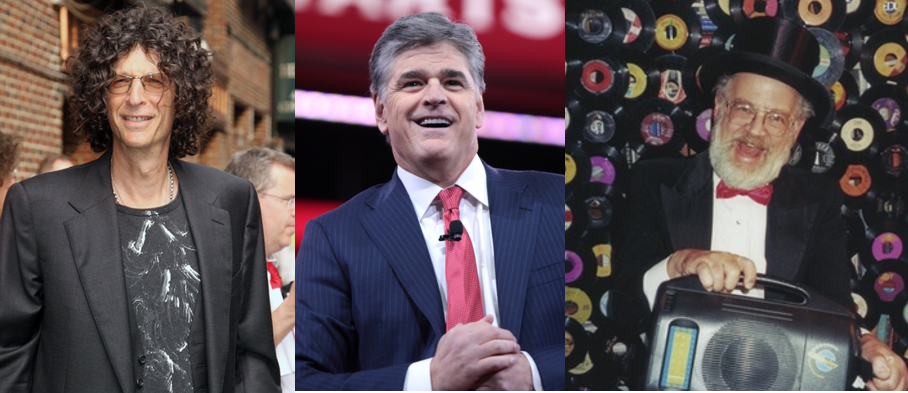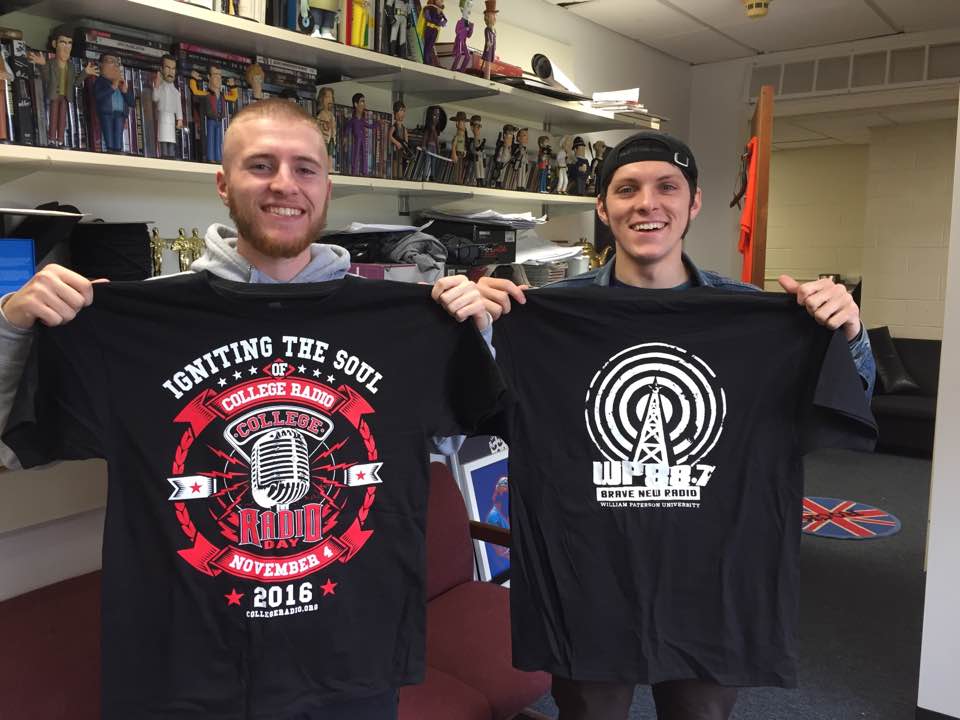
Today is College Radio Day, an event that celebrates the stations that gave many of us in commercial and public radio our starts. Yesterday, we talked about Millennial myths, but one truism is that today’s college radio stations are mostly populated by Generation Y – college students who are connected to their communities, uniquely providing entertainment and information. College Radio Day was recognized last week by President Obama, underscoring its value throughout the country.
If you ever worked in college radio, you’ll especially appreciate this post. Like many people who ended up in radio, I spent some time behind the mic at WFEE (the carrier current station in the basement of Fee Hall at Michigan State University). I believe that at any give moment in time, I might have as many as a half dozen people cuming my show. Fortunately, no airchecks exist of my slick air work, but the experience was formative and valuable to me.
College radio has come a long way during these past few decades. And to learn more about the state of the art, we went right to the guy who founded College Radio Day, Rob Quicke, to discover how it got started and what it’s all about.
JM: Tell us the story about your background and how you founded College Radio Day?
RQ: I was once a student at Oxford University, and we wanted to start an FM college radio station in the UK. The problem was, none existed! So we formed Oxford Student Radio and started a campaign to get a license from the UK government. A lot of people said this could not be done.
But we never gave up! If you tell a student “no,” they only become more determined! So, it took us three years, but eventually we created radio history when we launched  in February 1997. I was the first DJ on the air when we went live. That incredible experience changed my life. I still have friendships from those Oxford radio days. Ever since then I have worked mostly in college radio, even though I have also had experiences working in commercial radio in the UK.
in February 1997. I was the first DJ on the air when we went live. That incredible experience changed my life. I still have friendships from those Oxford radio days. Ever since then I have worked mostly in college radio, even though I have also had experiences working in commercial radio in the UK.
Fast-forward a few years, and I am now General Manager of WPSC 88.7 FM and Associate Professor of Communication at William Paterson University in Wayne, NJ. One day, in late 2010, I was thinking about how we could create a community of student broadcasters and raise the profile of college radio stations in the USA. I woke up the next morning with the idea of College Radio Day. After asking around and realizing that it had not been done before, I set about organizing the first one for October 2011.
JM: What is College Radio Day’s mission?
RQ: The aim of College Radio Day is to harness the combined listenership of hundreds of thousands of college radio listeners throughout the world and to celebrate the important contribution of college radio by uniting for this one day. If we can just get people to tune into their local college or high school radio station, we believe that they will probably like what they hear! After all, college radio is a place where you will hear music and programming not heard anywhere else.
Also, people perhaps don’t realize that college radio is still very tied to its local communities, both on and off campus. College radio gives a voice to not just students, but to those in the community as well. It’s a launching pad for many professional broadcasters!
JM: Thousands of broadcasters got their starts in college radio – who are the standouts that have gone on to iconic careers in radio?
RQ: There are many household names that people perhaps don’t know started their careers by being involved in college radio. I was on the Howard Stern Show back in 2011 and he talked with me about his time at WTBU at Boston University. Sean Hannity also started his first radio talk show at KCSB on the UC Santa Barbara campus. Dr. Demento started at KRRC at Reed College, and Wendy Williams was once a DJ at Northeastern University’s WRBB.
 There are, of course, many more. Well-known personalities such as David Letterman, Ashley Judd, and Keith Olbermann all started in college radio. There are many people in all kinds of careers who started in college radio, too.
There are, of course, many more. Well-known personalities such as David Letterman, Ashley Judd, and Keith Olbermann all started in college radio. There are many people in all kinds of careers who started in college radio, too.
Just last week we took a group representing college radio to the White House and at the start of his briefing with us, Brian Deese (Senior Advisor to President Obama) surprised us by talking warmly about his DJ experiences at WRMC-FM at Middlebury College. College radio has alumni everywhere – it is like a hidden network in a way. Lots of people have had experience with it!
JM: What is the current state of college radio and why does it still matter?
RQ: Many people may be surprised to know that college radio is alive and kicking, and most stations have an abundance of student broadcasters who are as enthusiastic and passionate as ever. On one hand, some stations have gone, because they were sold off by their university or college (which is a move that I believe is short-sighted and tremendously sad), yet on the other hand, we’ve had dozens of new stations get LP-FM licenses, and new online streaming stations are launching regularly. So, I think in many ways, college radio is thriving!
Many stations continue to struggle to get the funding they need, as some universities have yet to realize the value and importance of their campus radio stations. But college radio will always continue to exist. It’s also especially useful if the college radio experience can be tied into an academic curriculum.
Here at William Paterson University, where I teach radio classes, I make sure that the students are producing radio content that can be broadcast on the air as well. Sometimes we’ve even had a situation where a student has produced something so brilliant that it has won a national award at the Intercollegiate Broadcasting System or College Broadcasters, Inc. national conference!
I also remember back in 2004, when I was General Manager of WXAV 88.3 FM at Saint Xavier University in Chicago, when we even placed higher than the mighty WGN 720 AM after I mistakenly entered our station into the IBA Silver Dome Awards. I did not know that college radio stations had their own, separate competition, but we still came in 2nd place for best Community Affairs Programming, and WGN came in third! Our entire budget was about $10,000 a year, which I suspect was a lot less than WGN’s!
So there are moments when college radio can produce extraordinary content, which you won’t hear anywhere else. That’s why it still matters. There has to be a place where music and programming that does not get any exposure on commercial radio is made. There has to also be a place where students learn the basics and prepare for a future career in broadcasting – or any career in fact that requires being articulate, creative, and innovative.
JM: Overall, what is the interest level of today’s college students working in radio?
 RQ: From my experience, I would say that of those students who are involved in college radio, only a few of them will consider actually working professionally in the medium.
RQ: From my experience, I would say that of those students who are involved in college radio, only a few of them will consider actually working professionally in the medium.
I think that college radio is an important experience in and of itself. Numerous academic studies have found that college radio is a transformative experience that helps in the development of self-identity, communication skills and social bonding. The students who are involved with my station, WPSC, are here because it’s primarily fun, and they get a genuine sense of being part of a team.
There are, of course, several of my students who want to do this professionally. For those students, we do all we can to prepare them for the real world – and to make sure they get great internships before they graduate. Here in Wayne, NJ, we are on the doorstep of NYC, so we have a great track record of getting students great internships and then great jobs in the industry.
JM: What are college radio stations doing to make radio vital in the minds of college students?
RQ: If you just look at what stations are planning for College Radio Day, it’s very impressive. From special programming, live concerts, inviting alumni back on the air, and on-campus events for the wider college community – that’s just one day out of the year! Many stations engage with their campus community every day to remind students that they are an important source of information about campus life, but also a place that supports the local music scene, and where many great bands get their first start.
It’s also the place where discussions about important issues that affect students occurs. I’m aware of the fact that it’s not easy to get the students to tune in, or to persuade college administrations for the station to be broadcast in public places on campus, but many stations are connecting and serving their student communities well.
JM: What does college radio provide that commercial radio doesn’t?
RQ: Unbridled, unmitigated, unfiltered passion. Yes, mistakes will still be made (that dead-air joke still lives on) – but college radio is about authentically communicating passionate content that is life-changing for the students, and could be life-changing for its audience too. College radio offers an authentic narrative that connects university communities with students and musicians. College radio also offers a multitude of opportunities for people to get involved and one of the last mediums that allows students to find and air their own voices.
Last week, when we were at the White House, we were presented with a letter from President Obama recognizing College Radio Day and the importance of college radio. In it, Obama wrote that college radio is “not simply a proving ground for young people; it’s an opportunity for all Americans to experience new stories, new bands and new ideas.” We’ll take that!
JM: How can broadcasters best support college radio?
RQ: For College Radio Day this year, we saw a proper effort in securing sponsors for the event. We have taken the event to a whole new level. We are now taking most of that sponsor money and giving it straight back to the college radio stations who need it the most.
For the first time we are launching the ‘Friends of College Radio’ in order to directly fund station grants and, eventually, student scholarships, for those that need it the most. We were overwhelmed by the over 40 applications for just five grants that we were able to offer this year. We will announce the recipients for this year’s grants on College Radio Day (which is today). But there is more still to be done to help stations!
We would encourage anyone who wants to support college radio to become a member of this community, either individually (from just $5 per month) or as an organizational member. Our mission is to fight for college radio, support college radio and get it the recognition it deserves, and we need your help to do it! We are a 501(c)3 with the sole purpose to support college radio and to ensure that it’s still here for the next generation of student broadcasters. Now, that’s a cause to believe in!
Thanks to Rob for taking the time to give us the College Radio Day story. If you’re interested in donating or offering support, you can do so here.
And we’d love to hear your story about your college radio experience. Feel free to tell us about it below in the “Comments” section.
- Appreciating What We Have (When Our Lives Aren’t In Jeopardy) - January 30, 2025
- AI: Oh, The Humanity! - January 29, 2025
- Apparently, You DO Need A Local Weatherman (Or Woman) To Know Which Way The Wind Blows - January 28, 2025




College radio is a Life Skill and often a personal Game Changer. It’s also the best Fraternity/Sorority on campus! On Freshman Day 1 , 9/1966 at The University of Hartford, I started to lobby for a radio station (selection of UH was the one of 4 schools that didn’t have one). July 15, 1968, 3kw Stereo WWUH-FM signed on and alive & well today with 6kw erp, translators and excellent legacy. Louis Roth’s family (he was top aid to General Sarnoff) donated $50k naming rights; upon graduation UHFM was $17k in the black. Next stop a paid job at 20kw WBUR-FM, Boston as AGM/PD, 4/71 converted it to stereo, 7/71 to WBZ AM/FM. Great life friends, grew many superb broadcasters, outstanding times . College Radio: experimental foundations that benefit students, the industry and The Public’s Interest, Convenience & Necessity. Clark http://www.broadcatideas.com
For so many people, college radio was the “gateway drug” that turned them on to a great career. Thanks for the story, Clark.
My experience at College radio changed my career focus. I was a journalism major and took a part time job doing traffic at my campus station. I got radio in my blood and have never looked back. I have worked for some great companies in a variety of roles and it’s fulfilling, exciting, challenging and I am grateful for every single experience.
Barbara, I think a lot of people have similar experiences. Glad it worked for you. Thanks for sharing your story.
I too, found college radio to be an outlet for students not only to be introduced to the medium of radio broadcasting, but to also have a voice in expressing the needs of others in their local communities by giving honest commentary on the world they live in. I now enjoy a career as the local programming director for an NPR affiliate and teaching radio I as an adjunct professor. For me it’s the best of both worlds!
Candice, it’s a chance to learn, grow, and yes, make mistakes. I think the other piece that isn’t being mentioned that much is the camaraderie you get from college radio that is so hard to duplicate in the worlds of public and commercial radio. Thanks for weighing in.
KNTU North Texas state university – 1986. I had a crash course in jazz and lucky enough to be on a 100,000 W stick in the Dallas-Fort Worth area.
Luck sometimes has something to do with it, but getting that start in college radio is the one thing that so many of us have in common. Thanks, Bill.
I have such great memories of my time in college radio in Mankato, MN. That is what got me on my path of working in the music business.
And what a great run you’ve had! Thanks, Michael.
Nice piece, Fred.
Mine was WESU-FM (88.1) at Wesleyan University in Middletown, CT. It was (and is) “free form radio.”
As a freshman in the fall of 1977, the first record I spun was The Marshall Tucker Band’s “Can’t You See.” I also played a lot of Steely Dan. A faction of my fraternity would hold entire conversations around campus deploying lines from that band.
We also listened a lot to WCCC and WHCN just down the road in Hartford.
Ah, that Steely Dan. They might have been most-played back in college radio in the 70s. Thanks, Dave.
Great article ! got my start in radio in 1953 at Ithaca (NY) College 10 watt radio station WITJ-FM (now 5000 watt WICB-FM) My 60 year love affair with radio involved constructing two radio stations, managing three, was newscaster in the late 50’s at the mighty WKBW in Buffalo,NY. and retired twice from WHCU/WYXL
in Ithaca, NY. I also was a part time Instructor /Radio Director at the Ithaca College
School Of Comunications for 20 years. I read this years ago and it sums up my
wonderful 60 years in radio: “FIND A JOB YOU LOVE AND YOU’LL NEVER
WORK A DAY IN YOUR LIFE!”
Rudy, what an amazing career! Thanks for sharing it with us.
Was corresponding with Dave Van dyke (Bridge Ratings) about our days at WVUM, University of Miami. Was there from 70-74. Think Dave was two years ahead of me. WVUM aircheck got me a part time job at WSHE, Miami. That lead to a 45 year old career in broadcasting which continues. Now have 8 FM station in Alabama…all because of college radio. Tried to congratulate them today, but couldn’t find a website or Facebook page that would allow public comments. Best days of my college life – WVUM.
RIck, great to hear from you and a now familiar story of broadcasting success – starting in college radio. Thanks for the comment and the story.
I can’t resist saying “thanks” to college radio since here’s what I got:
1. I met my now wife (of over 41 years) at my college station, WBCR.
2. Our social network NOW is made up of our Brooklyn College Radio friends – our closest friends in the world.
3. College radio gave me enough of a lift that I’m still working in radio 42 year later (and loving it), and
4. I’ve become an adjunct professor at Caldwell University so I can teach radio, share my experiences (good & bad), and show today’s youth how they can have the same incredible life journey – because it’s theirs for the taking.
Thanks College Radio; you launched a life that is still soaring!
So marriage, friends, career – all from that experience in college radio. Thanks, David, for the great story.
Enjoyed this and go get em college jocks! Started at WSCX- Somerset County College (Now Raritan Valley) North Branch, NJ. A carrier current station that maybe got played by mistake in the cafeteria & some student lounges.
Tim Slats
WNCX-Cleveland
Tim, amazing how many of today’s radio vets all got their start behind the mic at their college radio station. Thanks for sharing.
No audio version? Just kidding. : )
I have some of the most fond memories of working at College Radio WXUT 88.3 at the University of Toledo. I had a small following (of around 3-4 that I can recall.. haha) that would listen to my show “The Land of Boz” regularly. I remember a “real” local dj called me to share some valuable advice to get better (he was very kind in his approach). We did “college night” at “Henry J’s” where I got my first taste of spinning at a club! I even got a bomb threat once; obviously was a prank. The experience of working in college radio was one of the best, invaluable!
Thanks for the story about those formative college radio years!
I was a MSU WFEE listener in 1969-70 being that I lived just upstairs in dorm room 619. Passed the station everyday on my way to the grill. I depended upon that station to introduce me to new artists and outrageous entertainment (“Wild Man”). WFEE played such an important role in my whole “enlightenment” period as a college freshman. Were you among that gang – Dick Ott, Ed Ramras, and the others?
No, I showed up later on – around ’73. They were fun days. Thanks so much for connecting, Tom.